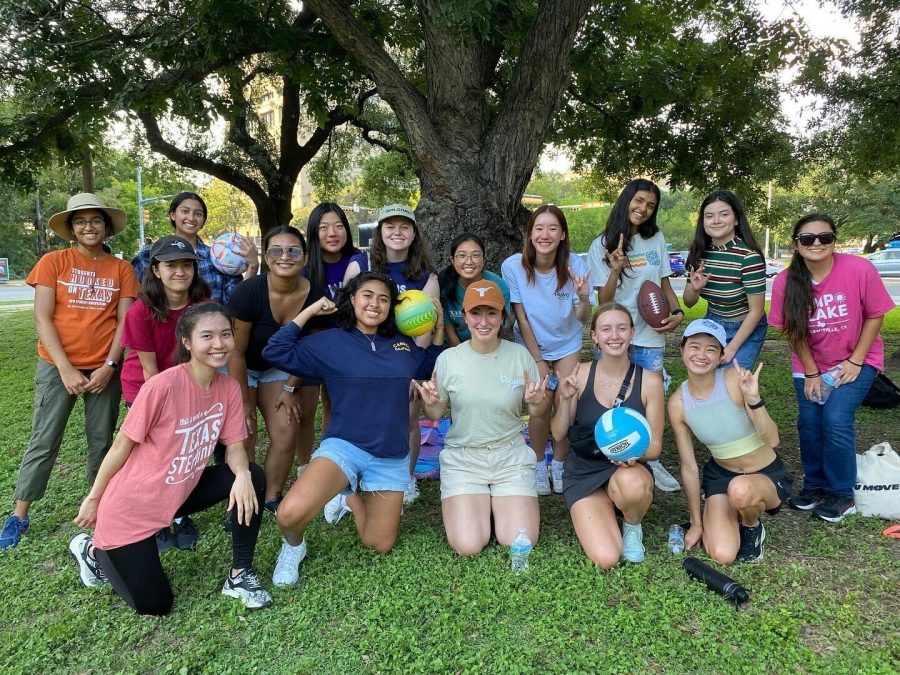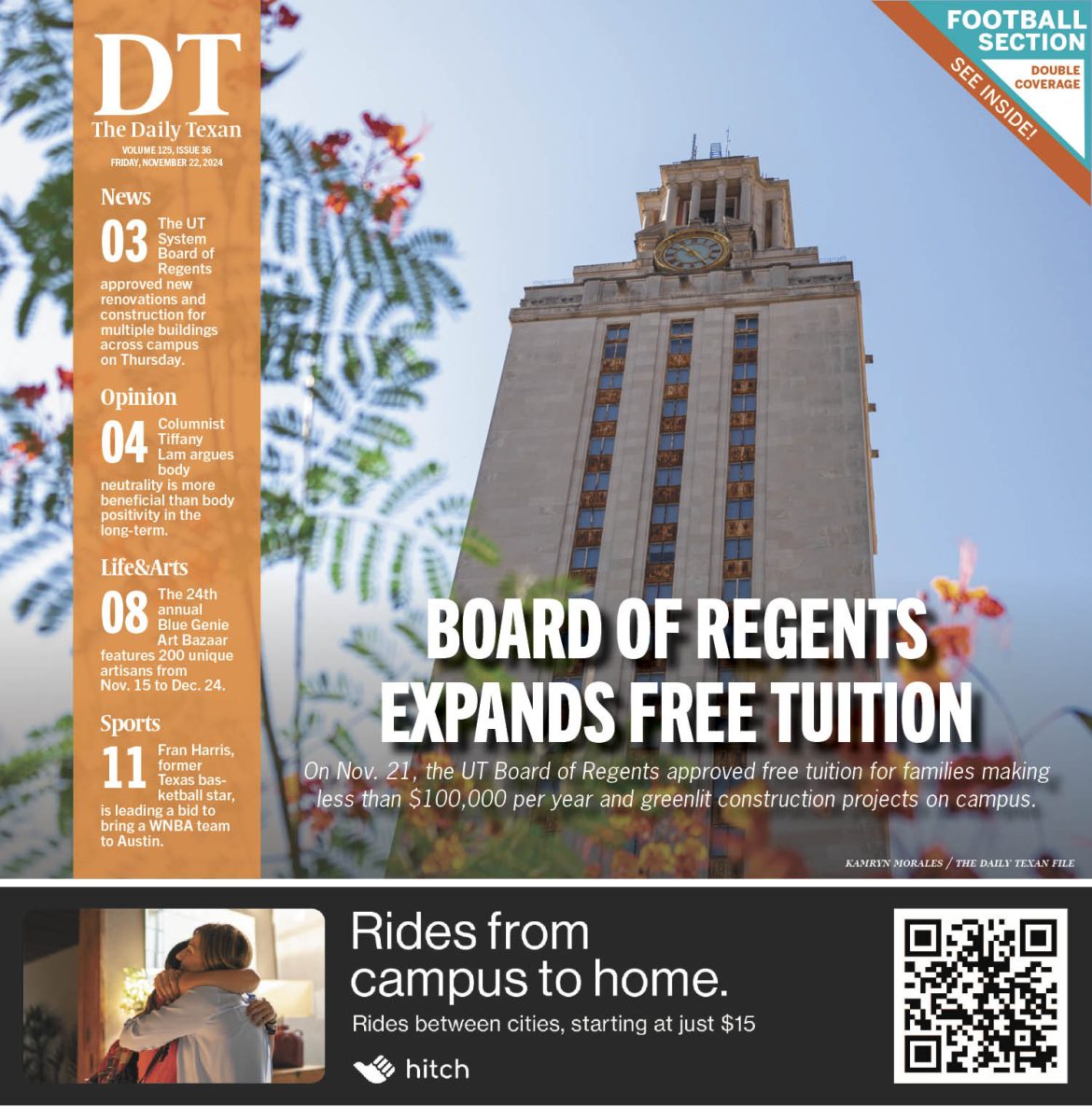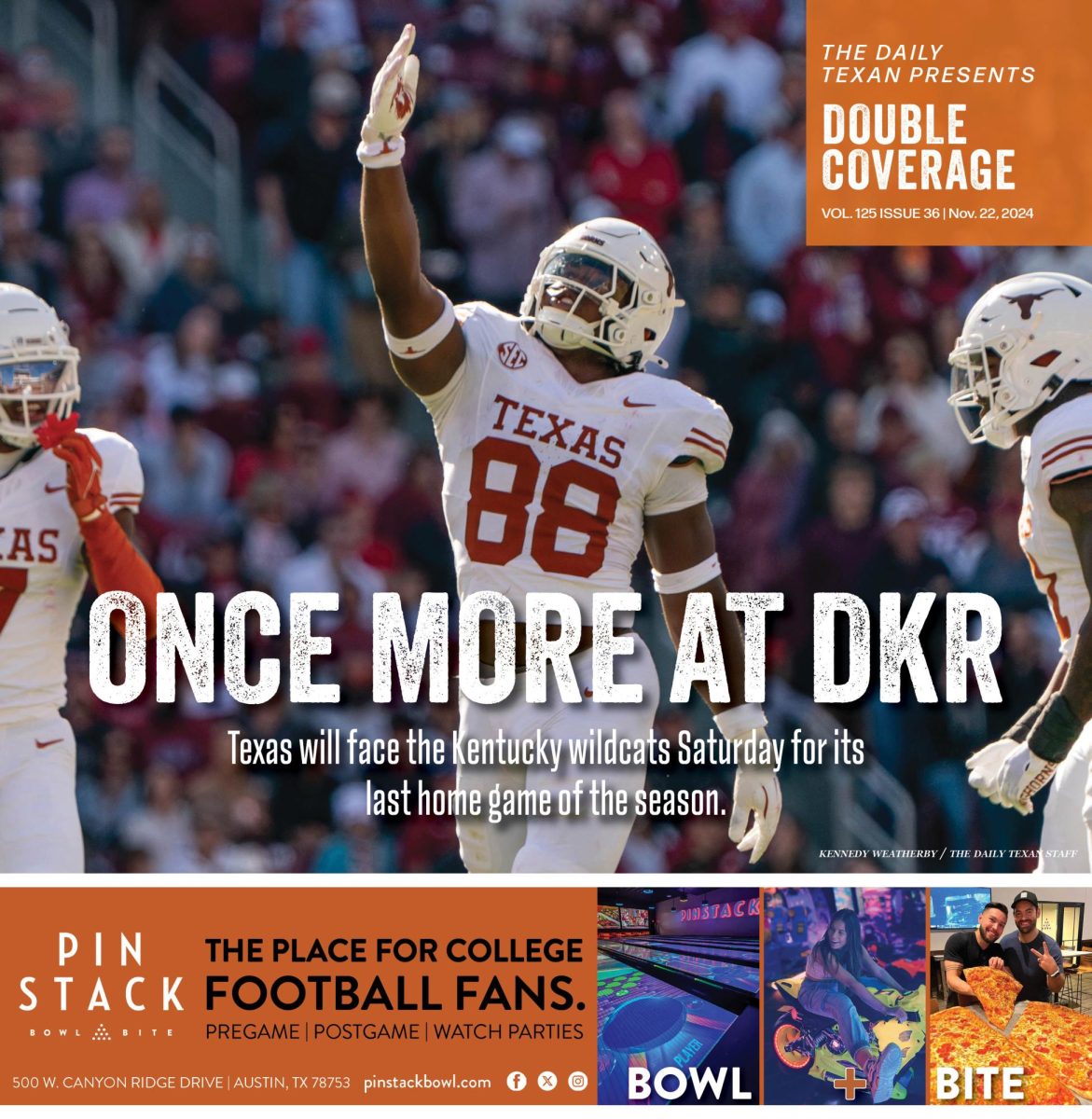Leadership of ‘Women in…’ student organizations at UT speak on why their spaces matter
The Society of Women Engineers pose for a team photo after a game of soccer.
December 19, 2022
UT has over 1,000 student organizations to choose from, guaranteeing a place for almost every niche interest. When scrolling through HornsLink, students find that many of these “orgs” are by women, for women.
Women’s orgs are commonly major-specific. For example, “Texas Women in Economics” is a space for women who study economics at UT. Some female students within women-dominated organizations say the orgs serve as a space for women within largely male-dominated fields.
Monika Dimitrova, vice president of Texas Women in Economics, said the field of economics is mostly male-dominated, leaving less space for women.
“With this org especially, bringing that community of women in econ to come together has provided us a good support system to be able to support one another and keep it going,” economics senior Dimitrova said.
Anjali Patel, president of Undergraduate Chemical Engineering Women, said as chemical engineering students go further into their major, she has noticed there are fewer women in upper-level courses.
“(This org) creates a nice way to find other people that you know,” chemical engineering senior Patel said. ”If there are other women (from) that class like in the organization, then you have immediate connections with other people.”
Undergraduate Chemical Engineering Women hosts panels where women in the chemical engineering industry speak about their experiences working in a male-dominated field.
“You can’t necessarily ask this question to men,” Patel said. “It’s really helpful to have someone on the other side who see the other side know what it’s really like. A lot of times they share either their struggles or some of the things that their company offers for them as women, so it’s nice to hear those things that way … for me, that was definitely a concern. But hearing experiences and connecting with these people, it was more reassuring to know what it would be like on the other side”
Even though these organizations are intended for women and female-identifying people, many of the women’s organization leaders said allyship is recognised through means of having men and male-identifying members.
“We are all inclusive,” said Kennedye Harris, radio-television-film senior and co-president of Women in Cinema. “We welcome not only women, but also non-binary identities and men. But, we really want women and non-binary identities at the forefront, driving the org and the conversations that we have instead it (feeling) like it’s the opposite.”
Jillian Merritt, president of Society of Women Engineers, said her organization has a new position opening in the spring called “He for SWE.”
“Having like a male affinity ally group is something new that we’re trying and we’re really excited about,” said Merritt, chemical engineering and plan II senior. “I think it’s important to have it be a women’s org, but also have that male allyship, especially when going into engineering fields.”
In addition to creating these spaces for women, the presidents touched on what it means to be a leader in such organizations.
Talia Elkhatib, president of Women in Civil, Architectural, and Environmental Engineering, said leadership means professionalism.
“(Being a leader) means preparedness to the workforce, and being able to experience different types of situations that would even prepare you more for whatever job that you would like in the future,” environmental engineering junior Elkhatib said.
Rocio Bautista, undergraduate events coordinator for Women in Mechanical Engineering, said the primary reason she became a student leader was to help women have a community. She said when she came to UT, it was difficult to acclimate to the male-dominated space without support.
“Joining Women in Mechanical Engineering, I saw that there was a community of women engineers,” mechanical engineering sophomore Bautista said. “Which was really a community and sense of belonging.”





